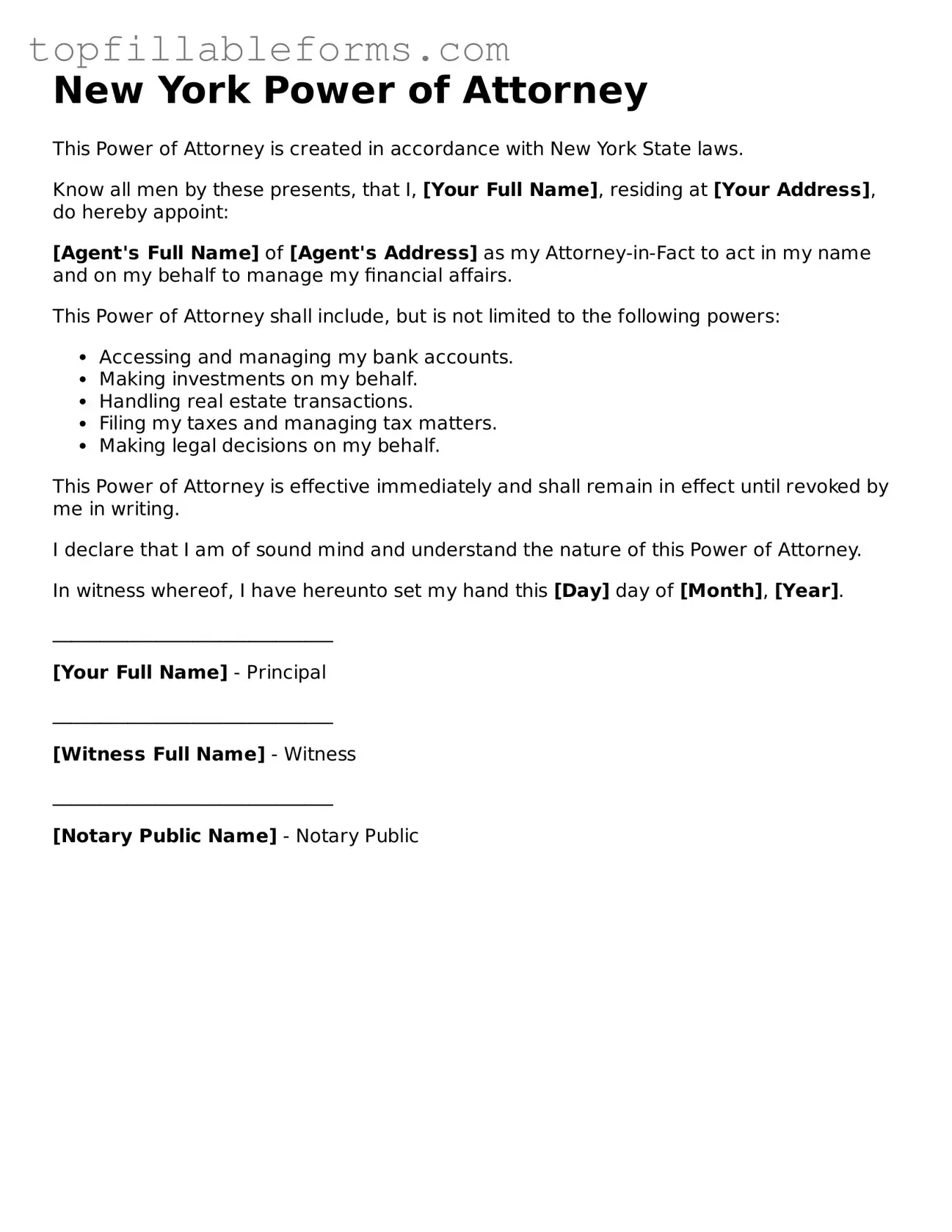Attorney-Verified Power of Attorney Template for New York
The New York Power of Attorney form is a legal document that allows an individual, known as the principal, to grant another person, referred to as the agent, the authority to act on their behalf in financial or legal matters. This form is essential for ensuring that decisions can be made when the principal is unable to do so. Understanding its components and implications is crucial for anyone considering this important legal tool.
Open Power of Attorney Editor Here

Attorney-Verified Power of Attorney Template for New York
Open Power of Attorney Editor Here
Finish the form now and be done
Finish your Power of Attorney online by editing, saving, and downloading fast.
Open Power of Attorney Editor Here
or
▼ PDF File
